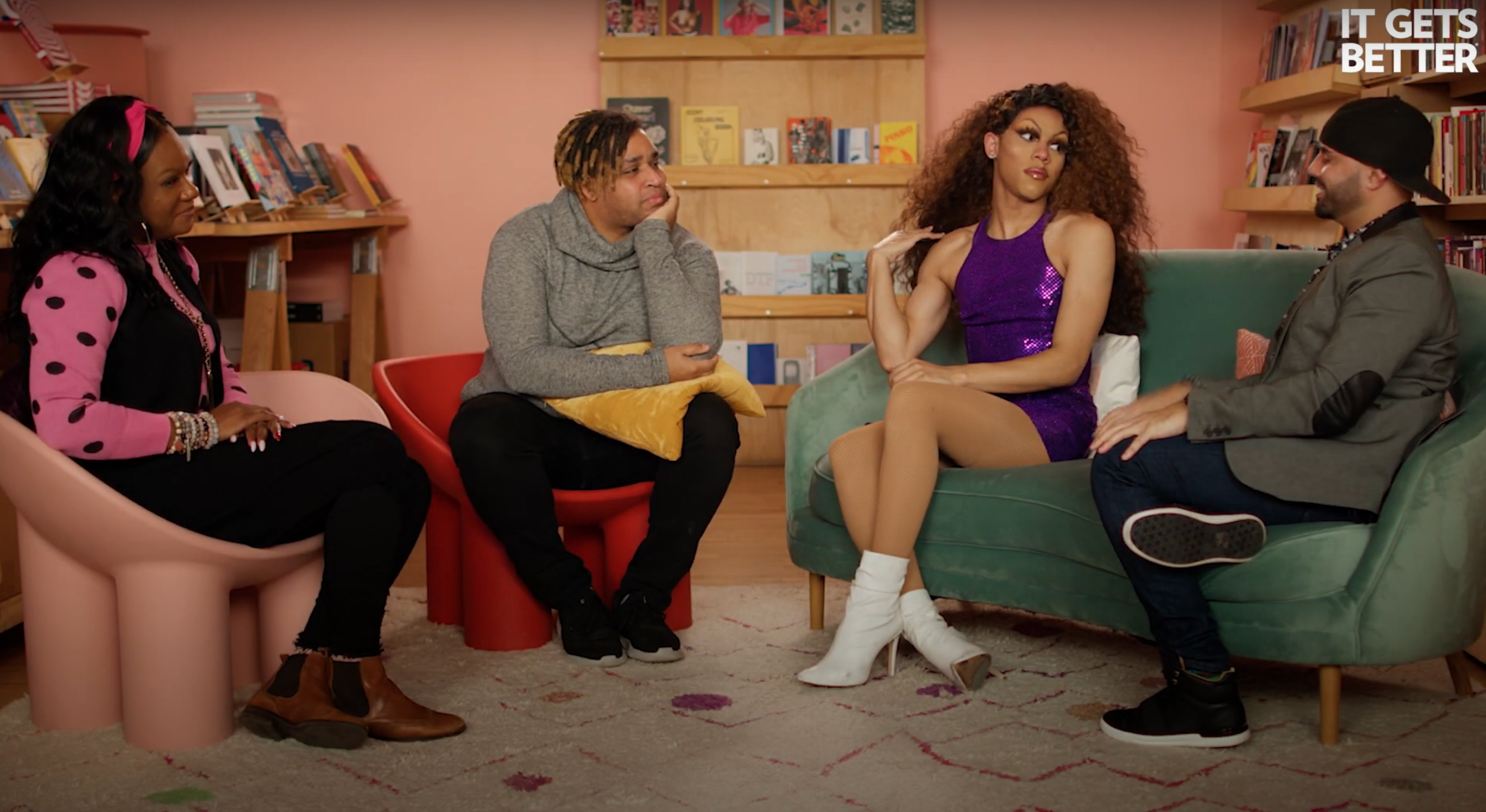It’s been a little less than a month since the It Gets Better Project premiered its Queer Sex Ed series, and with every new installment we’ve learned a lot about sexual health, pleasure, and intimacy. From taking on porn literacy to fighting against harmful stereotypes surrounding sex and intimacy, the 5-part series has cleared away a lot of the old, harmful cultural notions we have around seeking pleasure with others (and ourselves.)
Today, the final video drops, and as usual, it’s an eye-opening experience to hear two groups of friends get personal about STIs and sexual hygiene. To celebrate, here are just a few takeaways from the entire Queer Sex Ed series. And don’t forget to check out It Gets Better’s educational guide to learn even more.
Pleasure is Personal
When it comes to sex, one size does NOT fit all. And that’s totally okay! In Queer Sex Ed‘s first episode, three friends battle sex myths and figure out that when it comes to giving and receiving pleasure, it’s not as simple as the movies (and porn) might make it seem. “So many of us learn about sex through porn,” explains sexpert Melina Gaze, “and I think as we’re recognizing this, it’s important to talk about porn literacy.” In order to not get caught up in unrealistic expectations surrounding sex, it’s important to take a more critical approach to the images we see onscreen, both in the adult entertainment realm and in mainstream movies.
When Transitioning, Expect the Unexpected
In Episode 2, we hear from folks who faced unexpected changes to their libido after going on HRT. Much like with adolescent puberty, you never know what you’re going to get: some folks feel an increase in libido, while others feel totally shut down in that area. When it comes to hormones, you can expect lots of changes, but everyone responds to HRT differently. “The mind is changing,” Dr. Lexx says, “so attitudes are going to be different, emotions are going to be different.”
Intimacy Can Come From All Directions
“I used to think that sex was the only thing that meant intimacy,” says Tuna Melt during a conversation with three of their close friends, “now I’m learning about emotional intimacy.” And they’re not the only one! In Episode 3, which dives deep into the many types of intimacy we can experience as queer folks, we learn that there’s more than one way to get close. Not only that, but intimacy takes work: if we want to get the most out of our friendships and our relationships, we need to keep showing up, day after day, and giving the best of ourselves. That’s not all: intimacy takes many forms within romantic relationships as well. You can have intimacy with or without sex, and sex often constitutes just one way of being close to someone within a relationship.
Not All Disabilities are Visible
According to the CDC, 1 in 4 Americans live with a disability. Our culture, however, is still woefully behind when it comes to making the world we live in easily accessible for all. This makes things especially difficult in the dating realm, where we’re reduced to a picture and a bio that someone else can swipe right past. Even if you end up making a connection on an app, it’s not guaranteed that everyone will want to connect in the same way. For Margo, who has Postural Orthostatic Tachycardia Syndrome (POTS), penetration is often “an impossibility” since she deals with chronic fatigue and pain. Luckily, she’s found that there are plenty of ways to play around with different positions and roles to find what feels right.
Most STIs are Treatable
STIs might feel scary to talk about it, but it’s extremely important to talk about them. Disclosing your status might feel awkward, but it’s the only way to make sure that everyone involved feels safe, cared for, and ready to get down without fear. “If somebody comes to me and says, ‘hey, I have HIV but I’m undetectable,’ great!” says Philip, aka Peaches, in Episode 5. “I’m educated enough to know that that’s something that doesn’t have to be a make or break for me.” Conversations around STIs don’t have to be stigmatizing, especially considering that 1 in 5 Americans have an STI according to the CDC. Being upfront and honest with intimate partners is just another way of showing intimacy and care for your community. “Having an STI doesn’t make you ‘dirty,'” Melina Gaze explains. “It’s a health condition.”
Honestly, we’ve learned a lot over the past few weeks, and it’s only the start.
Don't forget to share:
Help make sure LGBTQ+ stories are being told...
We can't rely on mainstream media to tell our stories. That's why we don't lock our articles behind a paywall. Will you support our mission with a contribution today?
Cancel anytime · Proudly LGBTQ+ owned and operated
Read More in Impact
The Latest on INTO
Subscribe to get a twice-weekly dose of queer news, updates, and insights from the INTO team.
in Your Inbox













